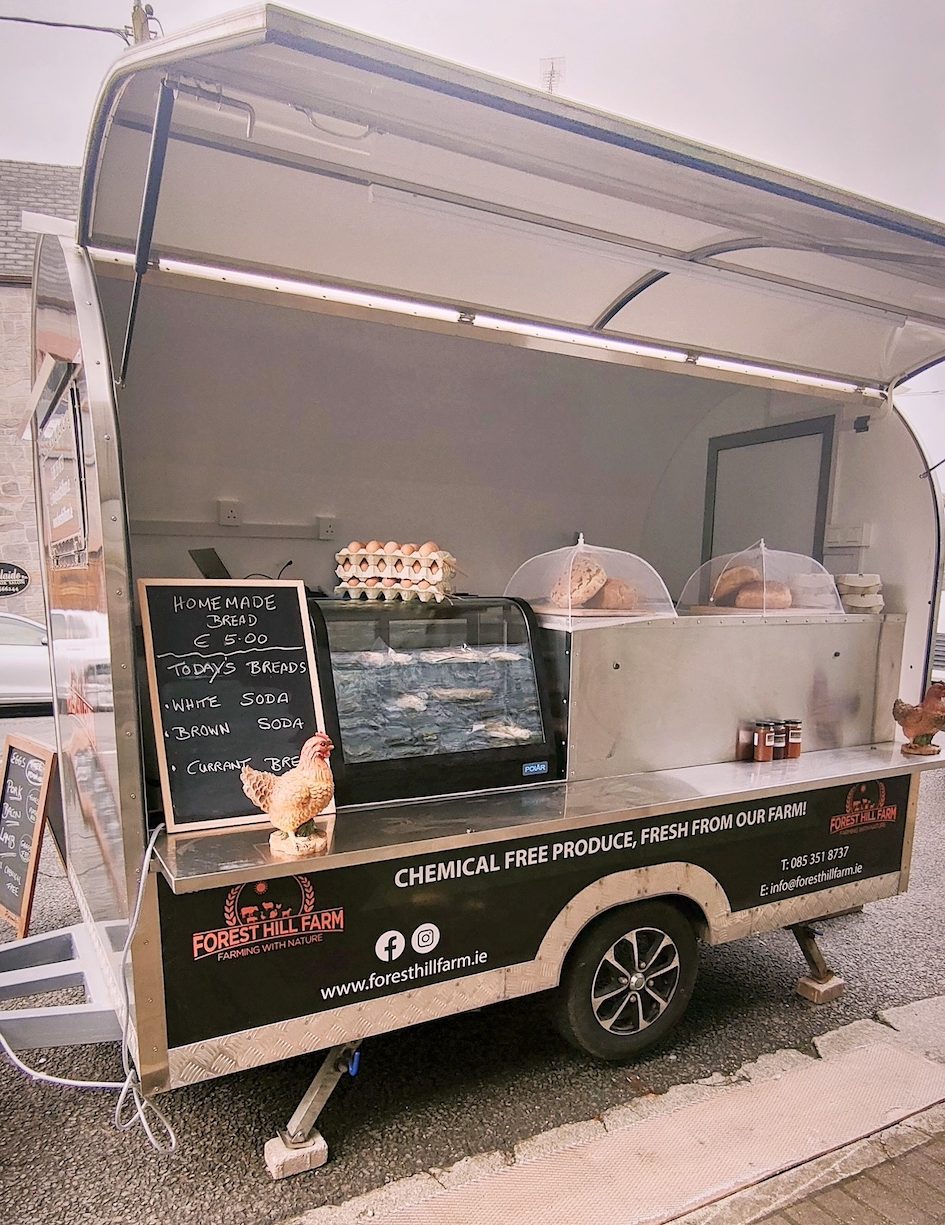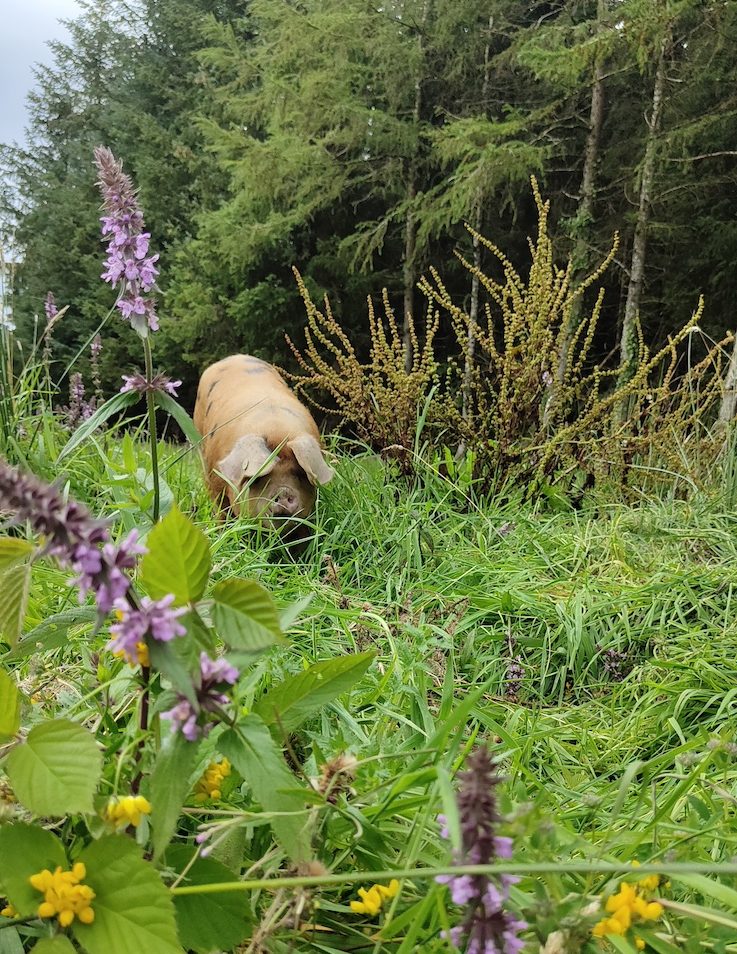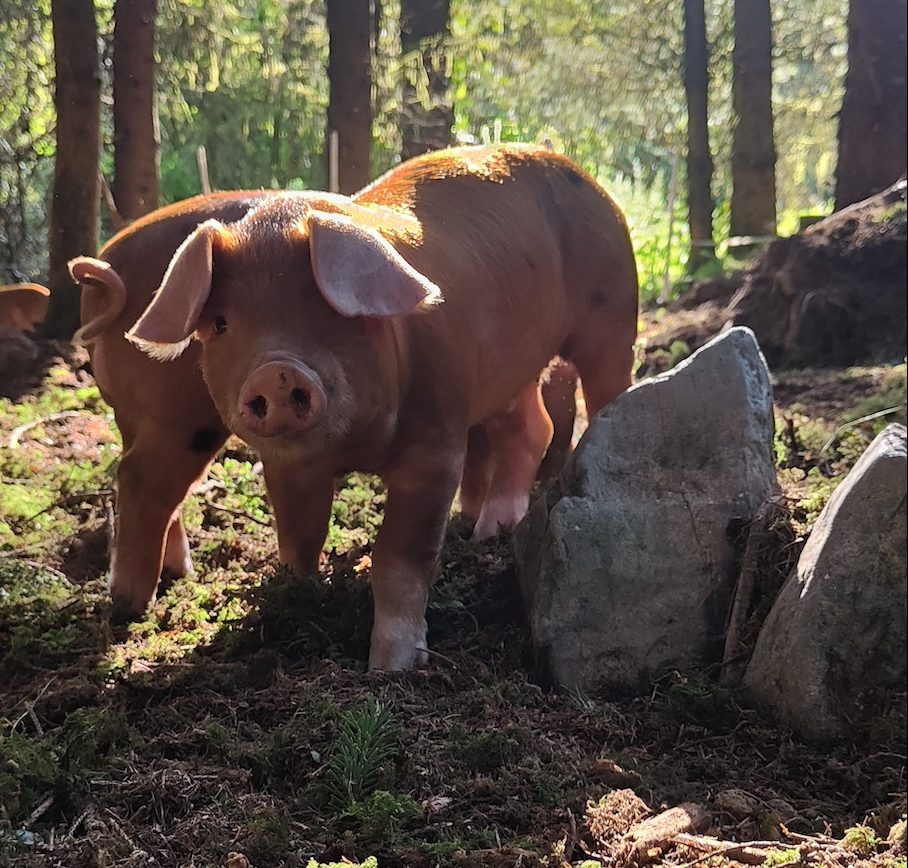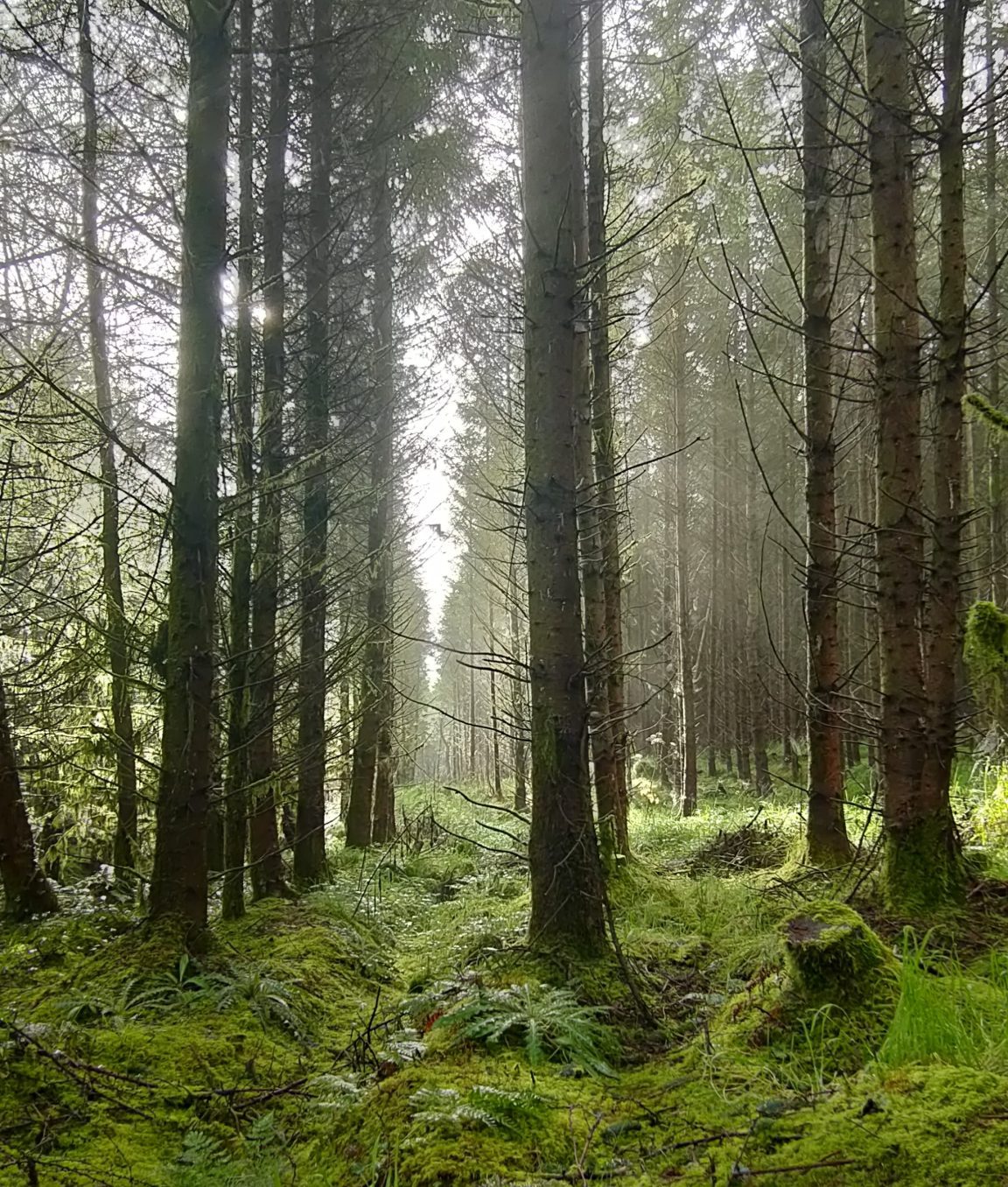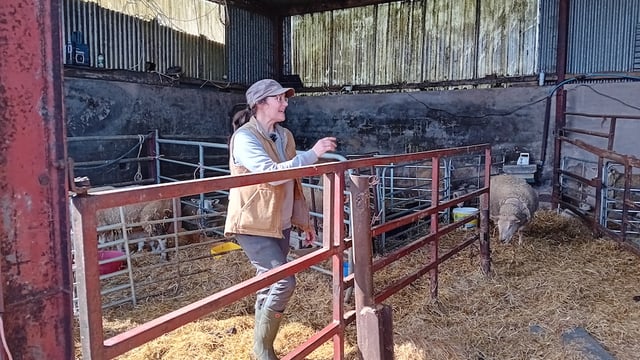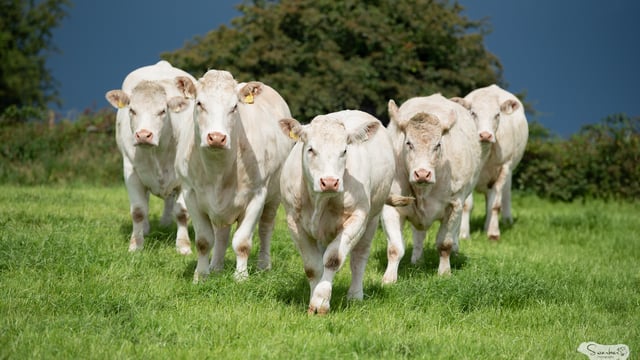Cavan couple producing food without any subsidy
Co. Cavan-based married couple Jane Carolan and Derek Lynch are on a mission to produce chemical-free nutrient-dense food while restoring soil health, ecosystems, regenerating habitats for wildlife and capturing carbon, with not a subsidy in sight.
"We want to farm in a way that not only provides nutritious food but also provides economically for us and socially for those around us by creating a space in which wildlife and farm life can co-exist and thrive," Lynch explained.
The Bailieborough couple's venture is located on Carolan's parents' 120ac of pasture with some forestry, which is run as a beef finishing enterprise.
"We always had an interest in how food is produced; who controls the food system and the impact this has on the quality of the food we consume and food security overall," Lynch continued.
"We wanted to be able to eat food that was produced as locally as possible and free of the heavy burden of chemical inputs that you find in conventional produced foods.
"We also didn’t want to be dictated to by farming bodies and bureaucrats. So, early on, we decided that we would not be applying for any subsidies.
"We want to farm the land as we wish to do it, in a manner that protects and encourages wildlife and habitats, produces high-quality, chemical-free food without some desk telling us we have to spray this poison or what to do with this other poison or to cut down trees or scrub or any of the other ridiculous and damaging practices that farmers are often forced to do against their own better judgement," Lynch added.
They both knew that they didn’t want to farm conventionally so that led to them researching alternative systems of food production including permaculture and regenerative agriculture.
"Both systems aligned with our ethos on food production and nature restoration. We spent a couple of years researching and taking courses in regenerative agriculture before we established Forest Hill Farm in 2021/2022," Lynch continued.
"In our first year we leased 3.5ac from Jane's parents to begin our farming adventure. I should add that we had little to no farming experience prior to starting our own farming business and possibly that’s what allowed us to think outside of the box when it came to how we wanted to run our farm.
"We firmly believe that a more localised and diverse food production system will be more sustainable especially in light of the uncertain climate conditions and adverse weather patterns that are becoming more frequent and destructive as we have seen with the recent storms," Lynch said.
The couple started off with 250 laying hens, two sheep and four lambs in their first season along with a range of fruits and berries to make jams.
In the second season they added a free-range pig enterprise, upped their birds to 300 and also bought in a few more sheep and lambs.
"We produce a range of jams from the fruit grown on the farm. We have lamb, eggs, and forest-raised pork and bacon. All are produced chemical-free. We do not use any herbicides, pesticide or fungicides on our farm," Lynch said.
"If an animal is unwell we try natural methods such as herbal remedies and vitamins and any medical intervention is done on a last resort basis. In the three or four years we’ve had animals on the farm, we’ve rarely had to resort to using a vet," he said.
The couple sell their products on their online shop. They also can be found at various farmers' markets throughout the year which people can keep updated with via their social media.
"The selling of the produce can actually be the hardest part of the whole enterprise. People are used to the convenience of going to the supermarkets and buying their packaged and processed foods without stopping to think how the food is produced and how this links to their overall health and wellbeing," Lynch contended.
"We have all become so accustomed to convenience in all its forms that we rarely think about it anymore.
"When you find a good farmers' market with customers who care about the quality of the food they consume, it's important to stick with it. We find that once customers taste the difference they will become repeat customers and your best advertisers."
Lynch explained that it has been a challenge getting set up and generating that customer base but is encouraged that the interest in the products is growing.
"There is definitely a growing part of the population that realise that we can’t keep doing business as usual in terms of food production and expect it to be sustainable or secure in the long term," Lynch said.
"We can’t continue to import food from all around the world while small farmers go to the wall here at home.
"If one link in the supply chain falters, it won’t take long for the supermarket shelves to empty. The opposite side to that is that consumers will have to continue to support small producers because when supermarket shelves do empty it’s the local farmer they’ll be turning to for their food. There’ll be no-one else," he said.
The farm's income comes solely from the sale of produce as the couple decided not to apply for any subsidy.
Trying to run two farm businesses is also a real challenge, the couple has found.
"Jane's parents are also running their enterprise from the farm which presents its own set of challenges. It can make planning for the future difficult at times, but you learn to compromise and adapt to any given situation," Lynch continued.
"Without the help of both sets of parents, families and friends, life would be a lot more stressful. They’ve got us out of many a hole.
"The regulations and paperwork can be challenging, contradictory and unnecessary at times but I guess all farms have that issue."
The weather is also a challenge as the couple recently lost a large part of their forest to the storms.
The Bailieborough couple would like to keep growing their business and what they offer. They intend to start cooking their food at markets and events as well as selling the raw produce.
"A farm shop at some point too would be great as the more we can sell online and from the farm directly, the less time we need to spend off the farm," Lynch explained.
"We will be regenerating the forest to a more natural and diverse woodland which will be resilient enough to survive future storms and hopefully one day we’ll be able to offer on-site accommodation. Great ideas, we just need to find the money and the time."



